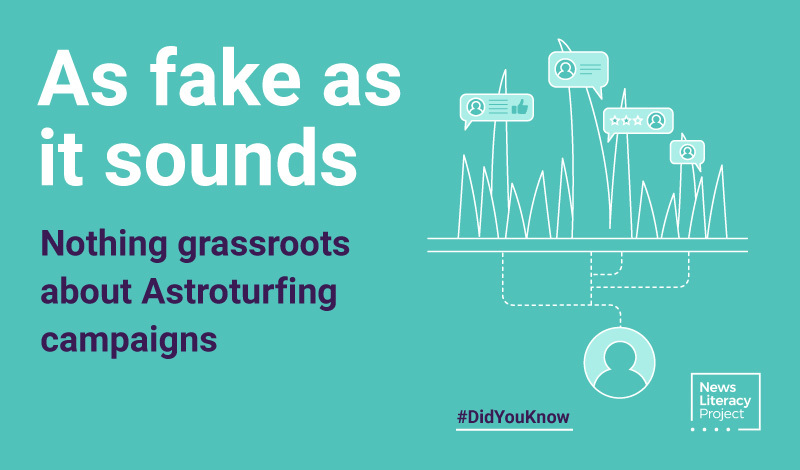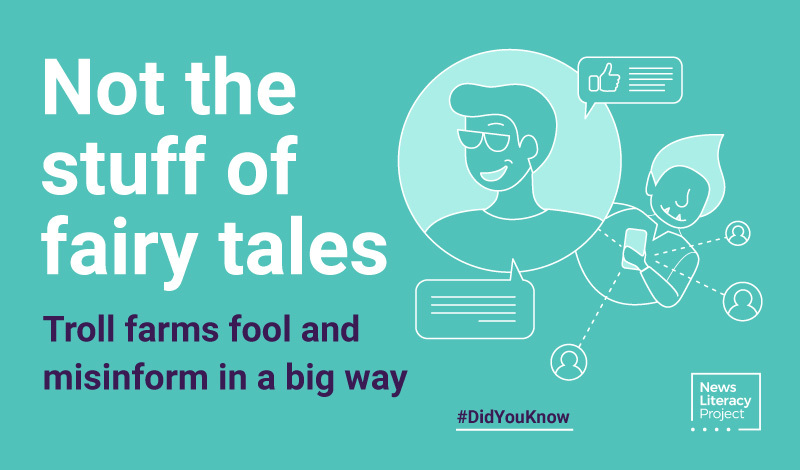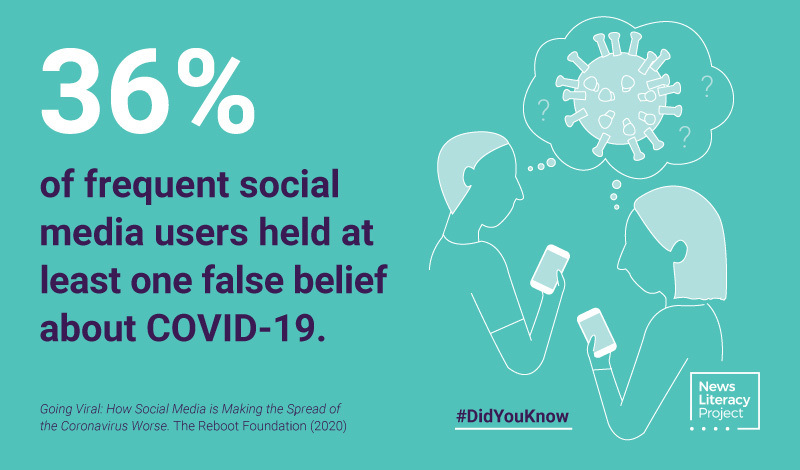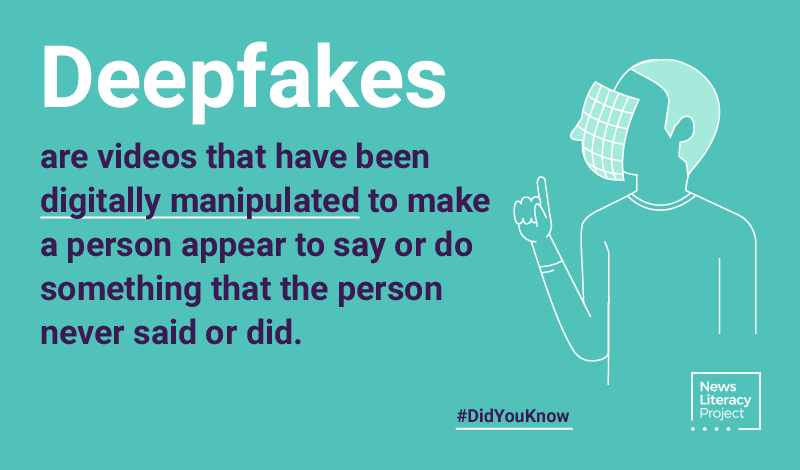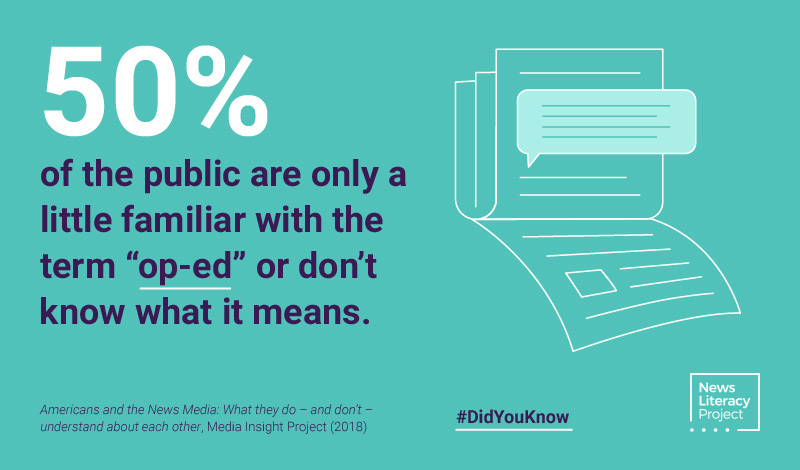
Did You Know?
Restless public focuses more on staying (and keeping others) informed
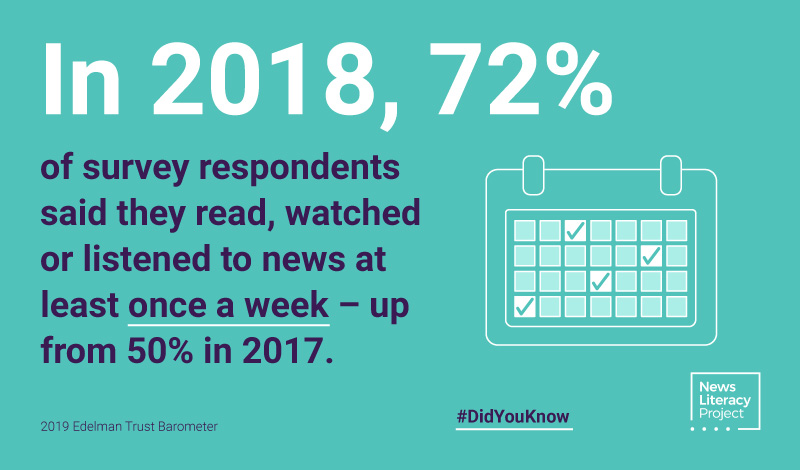
There’s an explosion in the number of people paying attention to news, and researchers say that this “massive rise” shows an “urgent desire for change.”
In 2018, 72% of the public surveyed worldwide by Edelman, a global communications firm, said they read, watched or listened to news at least once a week — up a whopping 22 percentage points from 2017. The reason, Edelman says in its annual “trust barometer,” is that an increasing number of people are frustrated by their eroding trust in societal institutions. Determined to be involved and to effect change, people are reading, watching and listening more — and are sharing what they learn.
And around the world, as the 2019 Edelman Trust Barometer (PDF download) shows, people also are growing more picky about the sources they turn to: According to the study, in the U.S. and Canada, 65% of the public said they trusted traditional media; only 34% trusted social media platforms as a news source.
And worldwide, 73% worry about false information or fake news being used as a weapon.
This is a win for “quality news,” writes Steve Rubel, Edelman’s chief media ecologist, in an assessment of the study’s findings. Too many voices and too much opinion have left people craving real news, he says, adding that the numbers bear out the idea that “journalism is again a beacon of trust in a world of distrust.” (While celebrating the change in consumption, Rubel also notes the relatively low trust in news overall, which in the U.S. stands at 47%.)
Edelman’s annual trust and credibility survey broadly measures what people think about four major institutions in society: government, business, nongovernmental organizations and media. The 2019 study, released in January, links the increase in news engagement with a similar rise in advocacy. Protest marches and walkouts at work are driven, according to Edelman, by the feeling worldwide that “the system” is not working for most.
